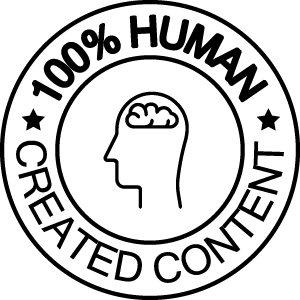Artificial Intelligence (AI) has in the span of just a few years managed to take over the world, and maybe even the human brain. As a result, dire and dangerous consequences are emerging – and it is worse than ever before. The research is clear: AI is destroying our mental health.
In previous articles, I’ve been uncovering the impacts of artificial intelligence on topics such as job displacement, how our children’s future is affected by AI, its inherent biases, and disregard for individual privacy – all while Congress fails to pass regulations in order to obstruct democracy from being further disrupted by technology.
In this article, however, I will tackle a whole different aspect of AI: its influence on our mental health. The stability and psyche of the human brain are being stripped away, bit for bit, and it is crucial that we analyze just how hard this impact is for ourselves and our future generations.

AI Is Socially Isolating Our Youth

AI technology is one of the most popular trends in mainstream culture today — from virtual assistants to bots and other tools that youths can use for communication with artificial companions. An example is the recent Snapchat feature, where you can pay $3 a month to talk to your “fake best friend” over Snapchat. I mean just look at this crap.
The thing is, AI-powered technologies lack emotional intelligence, which means that they are literally incapable of perceiving, understanding, or properly responding to human emotions in the same way that real people can.
What we’re now seeing is that people (mainly vulnerable youth) are substituting their real-life interactions with AI and it is having a disastrous effect on their mental health.
We’re humans! We’re meant to be social beings for Pete’s sake. Absolutely nothing can beat the connections that come from interacting with real, fellow human beings; and no dead husk of a machine can even come close to replicating this.
The Consequences of Social Isolation
For years, researchers have studied the damaging consequences of social isolation on mental health, and it’s no surprise that this type of isolation has been linked to higher incidences of anxiety, depression, and an array of other psychological issues.
At the contrary, we are also aware of how valuable true human connection is when it comes to reducing stress levels, providing emotional support and eventually uplifting our mental health.
With this in mind, we must make sure that individuals understand the potential risks of developing an addiction to these seemingly enchanting AI-companions- companions which do not technically even exist.

Yet, we are allowing massive corporations like Snapchat to charge our youth money for fake friendships, preying on what are likely already isolated children and teens.
I’m not such an old grumpy man that I can’t appreciate new technology, but this is getting ridiculous. The future for our children is looking bleaker by the second, especially now that I know a lot of them aren’t even trying to make real friends anymore. Their “fake best friend” at least answers instantly.
I’ve already done extensive research on how AI is impacting our children’s future, which I recommend you read more about in my article: “How AI Is Ruining Our Children’s Development.”
Like a drug: AI Creates Brand New Forms of Addiction
Social media has become a powerful force in the lives of both young people and adults, with AI algorithms curating our feeds to show us exactly what we want. No matter who you are, your TikTok, Instagram page or whatever else you use will be tailored precisely to suit your needs.
AI-powered algorithms designed on these platforms are built to be engaging so that you keep returning. By carefully monitoring your personality and behaviors, how long you stay somewhere, who you’re with, what remarks you make, and when – the algorithm can customize content specifically catered to your interests and desires.

This personalization creates something called an “addictive feedback loop“. You’re often inundated with content that simply reaffirms your beliefs and interests, disregarding alternate views and challenges. As humans, this feels good; it reinforces our beliefs while releasing a surge of dopamine in the process.
Just like with anything else, such as video games, drugs, alcohol, or coffee: dopamine = addiction.
We all like to hear that we’re right and that the way we exist and are is coherent with a group or community of people. That is what these algorithms do but in an artificial way.
“The path of least resistance” to social interaction is now curated through artificial intelligence-curated pieces of content, designed to keep us in our tracks.
Instant gratification and dopamine through this magical screen time is an addictive experience that leads to feelings of anxiety and depression when users are then unable to access the platform or receive new content.
So, I am sure you can see how these addictive algorithms have a significant impact on mental health. When you spend excessive amounts of time on social media platforms, you inevitably going to experience feelings of loneliness, anxiety, and depression.
I’m not going to preach about how you shouldn’t be on social media, just know that AI is behind it all – and it is just another way for them to access humans in ways we never thought before.
AI: Genius Innovation or Racist Uncle?
Artificial Intelligence is incredibly biased when it comes to its face scanning and informational algorithms. This is leading to false arrests, as AI is both racist and misogynistic. You can read more about its biases and related issues in our article: “The Dangers of AI: A Threat To Our Democracy”.
Can you imagine the potential future impact this has on the mental health of those being discriminated against? We probably cannot yet, but the reality is that AI only feeds off of the data it is given – and we are living in a systemically unjust system.
Inevitably, this means that the system AI is perpetuates will end up becoming unjust as well – just this time with a complete lack of empathy.
AI Doesn’t Care Very Much For Your Privacy

One of the absolute biggest issues regarding Artificial Intelligence overall is its serious invasion of privacy, as well as the lack of privacy protection that the technology provides. With no congressional regulations on both data privacy and Artificial Intelligence anywhere in sight, AI has been allowed to run rampant with nothing in its way.
AI-powered technology is collecting personal data in a variety of ways, from targeted advertising to surveillance in public spaces. If you’d like to learn more about all the ways AI is invading your privacy, check out our article: “5 Ways AI Is Invading Your Privacy Right Now“.
Privacy is a vital part of most humans’ mental health and the fact that AI technology is depriving us of this right will inevitably cause serious psychological issues in years to come.
AI Is Comin’ In Here and Takin’ Our Jobs
Poverty, and not being able to provide for yourself or your family, is one of the biggest mental health tolls that any human can face. And unfortunately, AI-powered automation has and will be, stripping hundreds of millions of people of their livelihoods.
A recent McKinsey study predicts that between 400-800 million workers will lose their job due to AI by 2030 – to put that in perspective, this means that if we’re looking at the worst-case scenario, over 35% of the world’s workforce will be lost to robots in just a few years.
People in all sorts of sectors, such as content creators and customer service, are being heavily affected. It’s not just low-paying jobs; white-collar jobs within the tech and financial industry are also going to be heavily affected. People currently relying on 6 figure salaries might risk homelessness in just a few years as a result of AI.

It’s not just losing your job that is a heavy toll on your mental health, but also the constant fear that you might be next.
Right now, the general public seems more excited than ever about the rise of AI because it is making their jobs “easier” – but what happens when those same people realize that not only does it make their jobs easier, it completely removes the need for their jobs at all?
Remember, AI does everything for the fraction of the price. Meaning that big rich billionaires get to be even bigger and richer billionaires, while the mental health of the average public rapidly declines.
Is This The Real Life, or Is This Just Fantasy?
Last but not least, and the whole reason why I started this website, we have the content consumption issue at hand on the internet today. We simply no longer know what is real and what is not.
The rise of AI language models such as ChatGPT has allowed bloggers and journalists to simply feed whatever prompt they need done into a soulless, dead machine and have it regurgitate whatever information it scraped off of the internet back to them.
This means that when you read a piece of content online, there is a huge chance that it is almost completely AI-generated. For example, Buzzfeed, one of the biggest news and entertainment websites on the planet, just laid of 12% of their content creators last December (2022) to be replaced by AI.
You can betcha I’m not reading any Buzzfeed articles now.
… not that I was before, but the point still stands.
Not being able to comprehend or understand what is real and what is fake is a massive detriment to our mental health, and results in a strange, new, and poorly understood effect of online dysmorphia where we are living in a constant state of content consumption paranoia.
AI-made content simply isn’t as good as real, human-made content. It lacks emotional intelligence and the empathetic depth that creates the human experience in art.
That’s why we created free icons that you can download for your website, allowing you to showcase that all of your content is composed entirely of humans. It’ll link to this statement, which will eliminate any paranoia or doubt regarding the influence AI may have had on your content.
Not only does this add value to your content, but it also shows that all the information provided is sourced from a real person with a soul, experiences, opinions, and expertise.
Protect Yourself From Coming Mental Health Epidemic
There is no doubt that Artificial Intelligence is taking over the world and having a significant negative impact on the mental health of its citizens. In just one year, ChatGPT has pretty much taken over the internet, resulting in an information boom that no one can quite keep up with.
It is incredibly important that we keep track of its development, and do our best to adjust accordingly. The world is changing, and becoming more automated. The more artificial intelligence takes over – the less emotional intelligence will be present in our lives.
Empathy is essential for the human experience, and it is a crucial way for us to connect, build lasting relationships, and, most importantly, build our psyches.
Be in the know. Look for the truth – and say no to AI.
THIS ARTICLE WAS MADE WITHOUT THE HELP OF ARTIFICIAL INTELLIGENCE.

